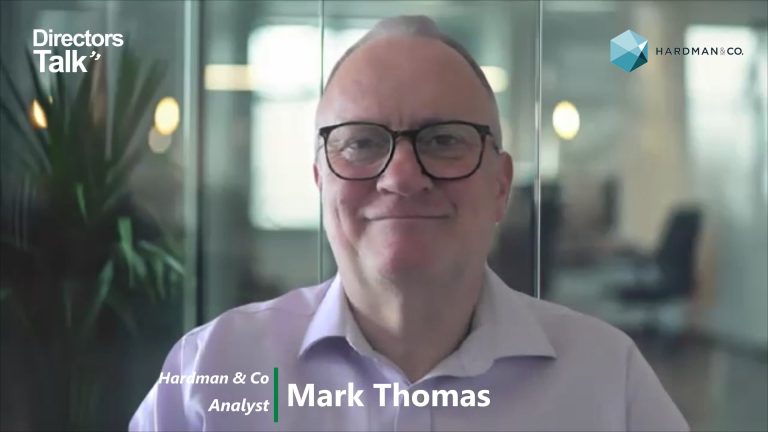Triple Point Social Housing REIT PLC (LON:SOHO) is the topic of conversation when Hardman and Co Analyst Mike Foster caught up with DirectorsTalk for an exclusive interview
Q1: What is Triple Point Social Housing REIT?
A1: This real estate investment trust invests in social housing in the UK. The largest component has been and will be investment into supported social housing, whilst there may be an element of investment to other social housing, we’ll define these in a minute.
This REIT was floated on the stock market in August last year, raising £200m and was over-subscribed. Triple Point Social Housing is a real estate investment trust, these trusts effectively pay no tax as long as 90% of income received is distributed as dividends which is the accepted way that quoted investment vehicles in real estate are structured for the past ten years. REITs are effectively tax neutral, the underlying shareholder paying tax on those dividends as applicable. REITs are liquid investments in illiquid assets, there’s a further point to do with liquidity, we’ll come to that later.
Q2: Can you tell us more about the type of residential assets Triple Point Social Housing REIT invests in?
A2: The asset type to date, and we anticipate this predominant focus on an ongoing basis, is specifically social housing which is dedicated to long term tenants with specific needs. This is supported housing specifically not care homes or retirement homes. Some tenants might have physical or learning difficulties, some might need a more structured supported environment, in all cases the structure of the house would be specialist in nature, maybe wet rooms which need strengthened framework or specialist layouts. Each tenant has their own room, usually with its own private front door.
Q3: Can we look at the financials for investors in the REIT, then the financial drivers within the REIT?
A3: The financials are that the REIT buys assets yielding between 5.5% and up to 6.5% and will grow to eventually borrow money, we would estimate at 3% or 4%, it plans a growing dividend payout of 5%. These numbers are eminently achievable, the tenants are long term, the houses are owned by the REIT and leased out to Housing Associations on 20-year leases, this is a naturally long-term business. The Housing Association runs it, maintains it, collects the rent and pays the REIT the lease rent, escalating usually with CPI inflation or a little more, in one way, this therefore is an investment by the REIT in a very long-term index linked clear cash flow. The Housing Associations sector has been financially robust.
In another way, the Triple Point managers want to ensure the assets themselves are sound and that they are not over rented, some such assets might be. That might lead to the Local Authority, who effectively pay the rent, cutting the allowance in the future and embarrassing the Housing Association, a major reputational risk for Triple Point if it ever happened.
Q4: What does this mean for the attributes of the assets?
A4: Triple Point Social Housing REIT is able to buy such assets, converted housing, for net initial yields after all costs at 5.5% up to 6.5%. Let’s look at the actual building blocks, the assets, there are some purpose-built but mostly converted residential properties, the conversion is extensive; frame structure, layout, safety. So, rents are reflecting the extensive investment per occupant, however rents are only a small part of the cost of social workers supporting each tenant, some on a 24-hour basis.
We’ll come in more detail in a bit to the financial attributes, but it is important to see the social element as this being a far better option both socially and in cost to the state compared to a large institution being home to such a tenant. The occupants tend to seek the security of lifetime tenure, many might come from a family home but where the parents have become elderly. Growth in demand is therefore high, both the move out of institutions and the move out of ageing carers.
Q5: What is Triple Point’s reputation then?
A5: Over the past 10 years, Triple Point, the managers of this REIT, has invested over £1 billion and built relationships with more than 150 UK public bodies like Local Authorities and NHS Trusts and so forth, its focus is long term leased assets, equipment, like vehicles, solar and fixed assets. To date it therefore had some expertise in residential but more in the general arena of structuring long leases on assets within the public sector. This has created the specific connections required to optimize relationships with counterparts going forward and investment of the monies raised is progressing to plan and well.
Q6: What amount of assets has been purchased to date?
A6: An update was given at the start of this year. The Company’s made an encouraging start, deploying £130.1 million of the IPO proceeds by end 2017 into 115 properties spread across the UK, all fully let and set to effectively remain so, with the long lease length.
Just 10 weeks after stock market flotation an update was posted, and £37 million had been acquired at that stage so that’s steady growth, all in supported social housing, much in the north of England, with typical costs around £1 million per extensively rebuilt residential property.
In January 2018 Triple Point stated it secured and we quote “partnership programmes with a number of specialist vendors in the sector. Through these relationships, Triple Point has secured an attractive near-term off-market pipeline of more than 105 additional properties worth over £145 million that are allocated to the Company, on which it expects to contract over the next four months.”
Q7: You said there was a further stock market related investment point?
A7: Investors in this type of REIT tend to be long term, but the stock market quote offers the liquidity to buy and sell the shares and crucially the buying and selling does not affect the underlying fund in any way. If an investor sells, the REIT naturally is not affected and has no need to sell its own asset holding.
In real estate investment, there is an ongoing trend of investors disinvesting from other types of funds such as open-ended non-quoted vehicles, we estimate well over £20 billion is in these open-ended funds. Post the EU exit Referendum, a number of high profile open ended funds needed to suspend redemptions, REITs are ‘closed-ended’ and are thus far better vehicles into real estate, which is inherently illiquid. Money from open ended funds will continue to look for new vehicles and REITs will be high up the list. Many UK REITs rely on the discretion of the managers as to what types of assets and what strategies are adopted. In difficult times investors would rather have certainty as to what the strategy is, Triple Point Social Housing REIT does just that.
Q8: There have been a few such residential REITs, what are Triple Point Social Housing differentiators?
A8: Some of the other REIT’s are exposed to market movements in house prices, these Triple Point effectively are not. Like the generality of such residential REITs, Triple Point aims to pay a growing 5% dividend yield on float price, it’s trading a fraction above float price and the math’s add up to this being eminently achievable. Small but interesting point, the mangers will take 25% of fees in shares.










































